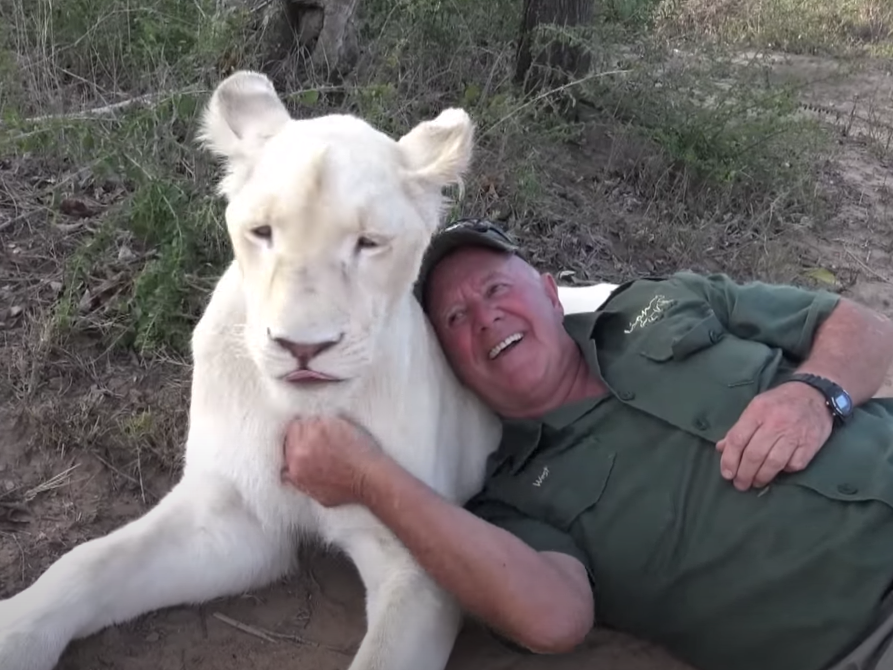Man who kept two lionesses captive at safari lodge mauled to death while taking them on morning walk
West Mathewson had kept pair of white lions since they were cubs

A South African man has been killed by two lionesses after he opened the paddock he kept them in to take them for a morning walk.
West Mathewson, 68, was reportedly mauled to death by the two adult white lions which he had kept since they were cubs rescued from a “canned hunting farm” where wild animals are hunted in enclosures.
Mathewson’s wife Gill, 65, stepped in to try to save her husband from the two 400lb (180kg) animals but the lions had already inflicted fatal injuries, according to The Telegraph.
Mathewson's daughter-in-law Tehri Fergusson told the paper it was unclear why the lions had killed him, but said they had not tried to eat him and suggested his death could have been the result of “rough play”.
“We will only know why he died when we have the results of the autopsy,” she said.
“We have to realise, West was not as young as he thought he was. We are still not sure what actually happened but there was very rough play.”
The pair of lions had previously killed another man.
In 2017 they both broke out of their enclosure by climbing up a tree and jumping over the fence and attacked a worker and his friend on a neighbouring property.
At the time, Mathewson stressed that the pair of lions were friendly and not aggressive and that he walked them for 3 - 4 hours per day, according to Africa Geographic.
The Mathewson family run a safari company named Lion Tree Top Lodge, near the town of Hoedspruit, about 280 miles north west of Johannesburg.
Ms Fergusson said the lions had been tranquilised and temporarily moved to a shelter for endangered animals.
According to the Telegraph the mature animals may then be released into the wild for the first time.
Ms Fergusson said: “They are in a safe place now and they will be cared for and loved, and then they will be let loose into the wild, but they will not be returning here.”
Join our commenting forum
Join thought-provoking conversations, follow other Independent readers and see their replies
Comments